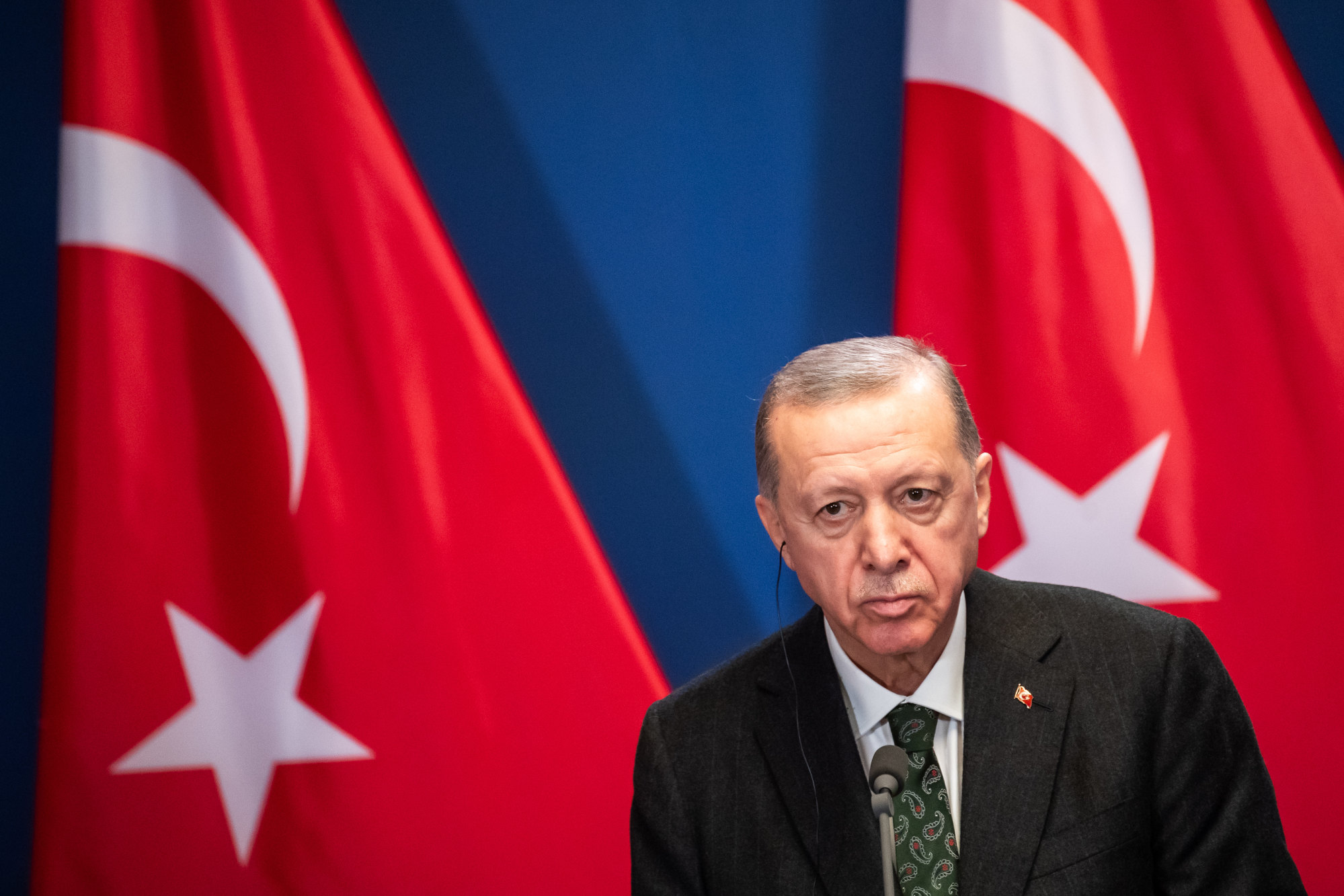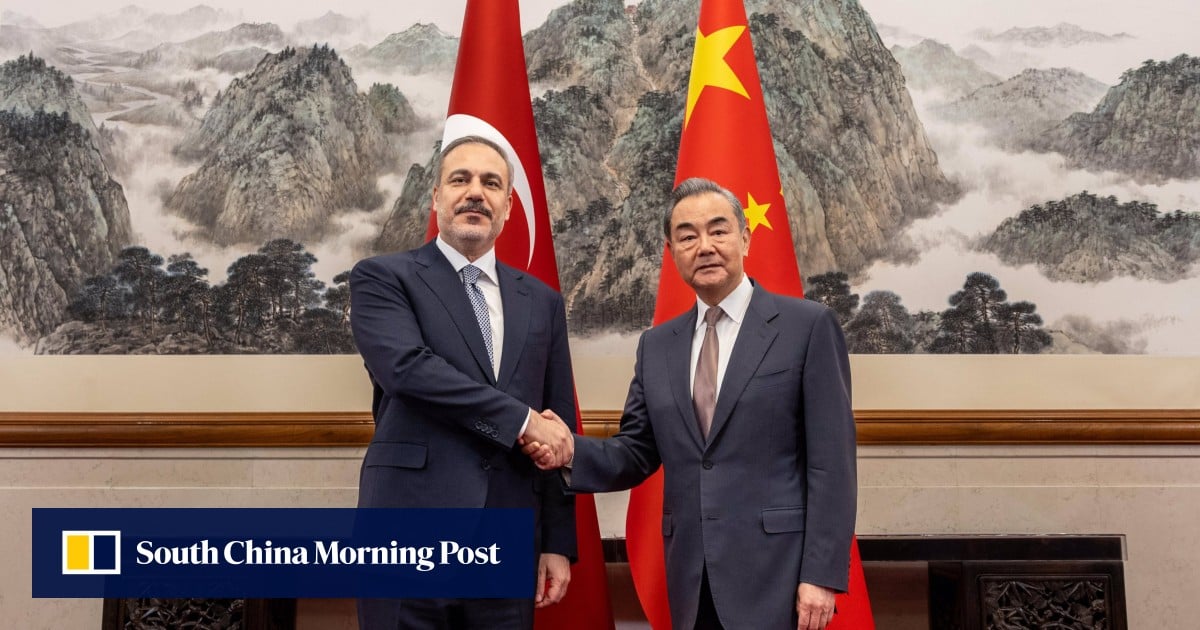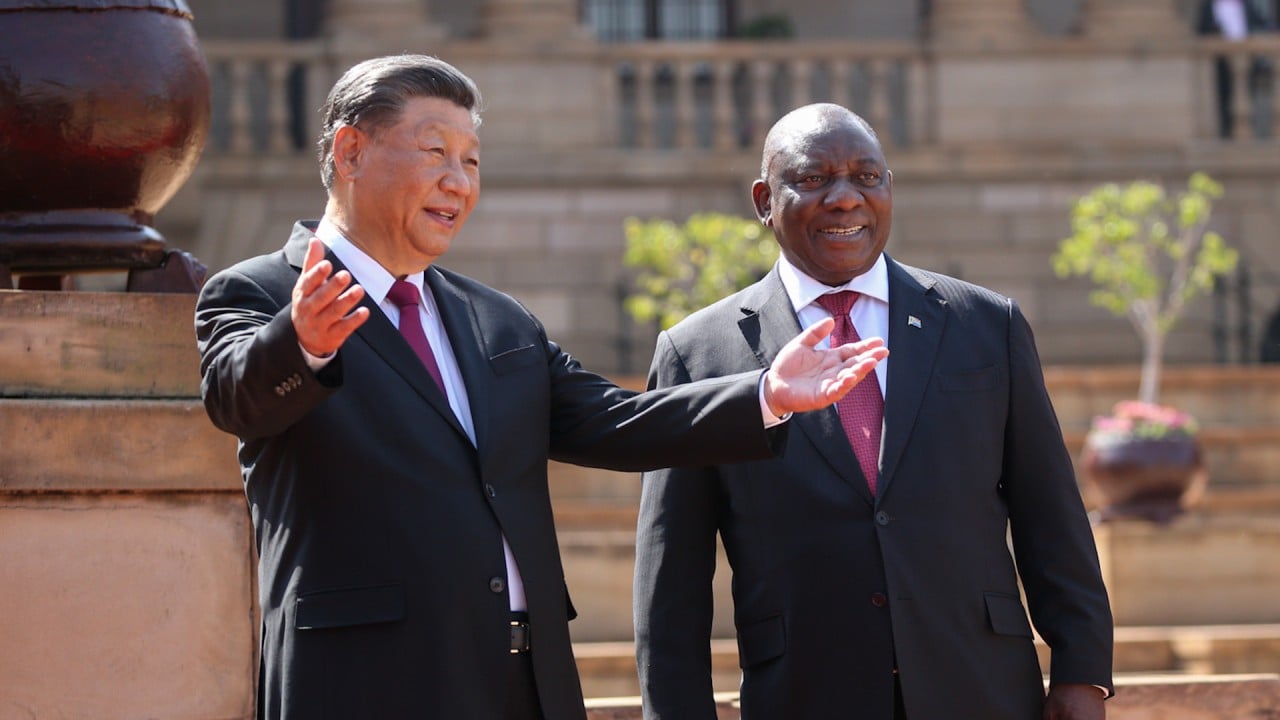China eyes closer ties with Turkey to take on global ‘power politics’
“China is willing to continue to strengthen coordination and cooperation with the Turkish side within the framework of the United Nations and the Group of 20, to oppose all forms of hegemony and power politics, and to maintain the stability of the global supply chain,” he was quoted as saying.
The talks came on the second day of Fidan’s three-day trip to China.
Earlier on Tuesday, Fidan met Vice-President Han Zheng, telling him that Ankara was ready to have close high-level exchanges with Beijing.
According to a Chinese statement, Fidan told Han that Turkey adhered to the one-China principle and “will not allow activities in Turkey that undermine China’s territorial integrity”.
Fidan is expected to visit the cities of Urumqi and Kashgar in Xinjiang Uygur autonomous region before wrapping up his trip on Wednesday, according to Turkish broadcaster TRT.
If the trip is confirmed, Fidan would be the most senior Turkish official to visit the region since Turkish President Recep Tayyip Erdogan was there as prime minister in April 2012.
Fidan began the trip with talks with security chief Chen Wenqing and by attending a dialogue organised by the Centre for China and Globalisation (CCG), a Beijing think tank.
“Certainly, we would like to become a member of Brics. So we’ll see how it goes this year,” he said.
He said he looked forward to attending a meeting of the mechanism in Russia next week when foreign ministers from Brics countries – Brazil, Russia, India, China, South Africa, Iran, Egypt, Ethiopia, Saudi Arabia and the United Arab Emirates – will meet in the western Russian city of Nizhny Novgorod as part of the lead-up to the October summit in Kazan.
One of the topics on the agenda is expected to be the possibility of Turkey, a Nato ally, joining the Brics grouping.
Erdogan declared his country’s intention to join six years ago at the Brics summit in Johannesburg but there has been little progress since then.
Speaking at the CCG event, Fidan said that one of the important pillars of Turkey’s foreign policy was to form strong economic ties in an institutional form.
He said that due to “identity politics”, Turkey has never been allowed in by some major EU nations to become a full member of the European bloc though it had been trying to join for a long time.
“So you have to look for other alternatives,” Fidan said.
Although noting that Brics still “has a long way to go”, “we cannot ignore the fact that Brics, as an important cooperation platform, offers some other countries a good alternative,” he said.
“We see potential in Brics,” he added.
Nearly four decades ago, Turkey applied to join what was then the European Economic Community, and in 1999 it was officially recognised as a candidate for full membership in the EU.
The negotiation on Ankara’s accession bid began in 2005 but has long been stalled over a range of issues – from human rights to foreign policy – with several European capitals.

In Moscow on Friday, Russian Foreign Minister Sergey Lavrov said the doors of Brics were “open to representatives of the most diverse economic and political systems and macro-regions”.
“The only condition is that you must agree to work on the basis of the key principle of the sovereign equality of states,” he said.
Fidan said investment and trade issues were parts of his agenda during his China trip, noting that the two countries were still “far behind” in making the most of their economic potential.
He said Turkey welcomed Chinese investment in the country, especially in key infrastructure projects, but in recent years, there had been a slowdown in joint investment projects.
“This is one of the things that I want to raise while I’m here in China, to really fix this slowdown, to try to speed it up, to identify what are the obstacles, what are the reasons that we are experiencing this slowdown,” he said, adding that he would also discuss ways to balance bilateral trade.
In the first four months of this year, China’s exports to Turkey fell 5.1 per cent from a year earlier in US dollar terms while imports were down 4.4 per cent, according to Chinese customs data.




